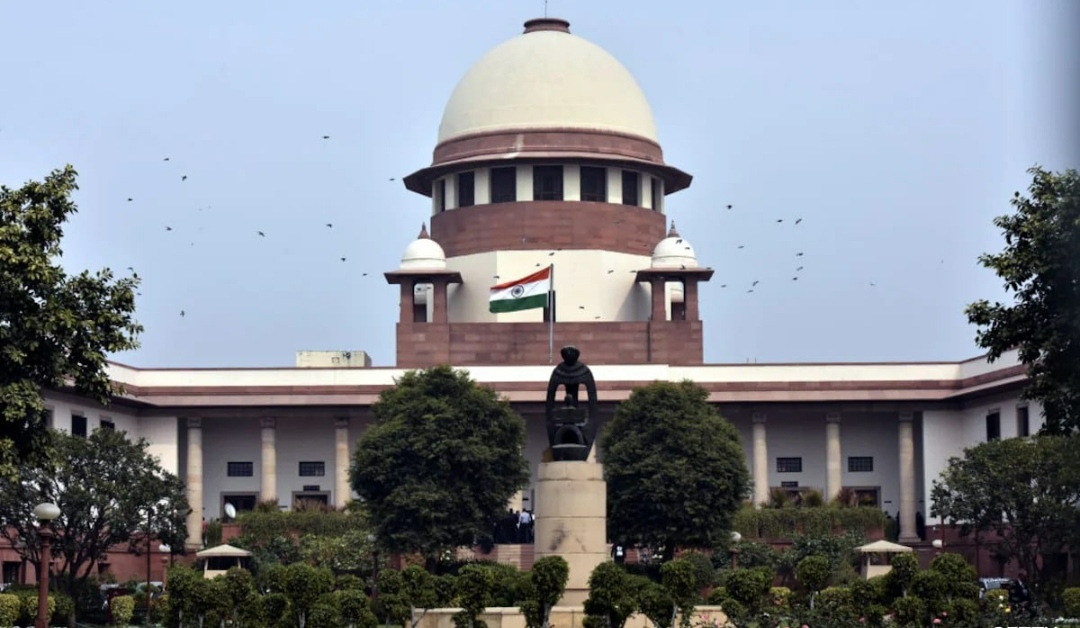Justice Kohli said the indistinguishable nature of deepfakes from reality poses a profound challenge to the authenticity of information and the sanctity of individual identities.
New Delhi:
Supreme Court Justice Hima Kohli on Saturday expressed concern over the growing trend of sexual harassment on social media and said the emergence of deepfake technology is a revolution, but it also resonates. Alarm bells ring about invasion of privacy, security risks and the spread of misinformation. Speaking at a ceremony on the subject of harassment and discrimination, Justice Kohli said that in the contemporary digital landscape, the rapid rise of social media has not only changed the way people communicate but also redraws the contours of harassment, especially on the basis of gender. power. abuse. “At the same time, the emergence of deepfake technology, a type of artificial intelligence, is a source of deep concern. Its ability to easily create highly realistic content is revolutionary in entertainment , but it also raises alarm bells when it comes to privacy invasions, security risks, and the spread of misinformation,” she said. Justice Kohli said the indistinguishable nature of deepfakes from reality poses a profound challenge to the authenticity of information and the sanctity of individual identities. “The biggest danger posed by deepfakes is the ability to spread false information that appears to come from trustworthy sources,” she said. speak.
She said this paradigm shift, further accelerated by the global trend toward remote working, has blurred the once-clear lines between professional and personal spaces. “Harassment, once a concern primarily within the physical confines of office spaces and workplaces, is now spreading to virtual arenas where professional and personal lives ours intersect and interact.”
Justice Kohli said that despite its advances and conveniences, the digital age also caused glaring vulnerabilities.
“Harassment in these virtual environments is not limited by any physical barriers or regular work schedules, creating opportunities for this behavior to occur anytime, anywhere, online.
The inherent characteristics of digital platforms – including anonymity, easy access, and rapid dissemination of information – magnify the severity and scope of such harassment.” she said.
Warning of its impact, Justice Kohli said that in the realm of social media, harmful content can quickly multiply and spread, further complicating efforts to mitigate and address the consequences of It.
She says the problem is further complicated by the often invisible nature of virtual harassment, as it can be just as damaging, if not more severe, than offline harassment.
“This fosters an environment in which anonymous offenders can act with disturbing impunity. On the other hand, the victim may feel increasingly isolated and helpless. They often find themselves grappling with the challenge of gaining support in a space where evidence is ephemeral and accountability is often unclear,” she said.
Justice Kohli said the multifaceted challenges of online harassment require a thorough understanding of digital platforms as tools of empowerment and potential vectors of abuse.
“Abuse includes blackmail, ruining a person’s reputation or simply cyberbullying. To tackle these issues, a comprehensive approach is needed, involving cooperation between policymakers policy makers, social media organizations, employers and businesses. This strategy should focus on creating safe online environments, promoting digital literacy, fostering respect and provide strong support to victims,” she said. She added that the goal is not only to respond to the changing landscape of harassment but also to actively create a safe, inclusive and inclusive digital world.
“With these technological advances, the urgent need to strengthen and expand legal frameworks such as PoSH (Prevention of Sexual Harassment Act) becomes increasingly important. “It is essential to adapt legal structures to effectively combat harassment in digital and online spaces, ensuring that they keep pace with rapid technological advances,” she said ” digital world.
Justice Kohli added that gender-based violence, especially violence against women, is endemic whether at home or in the workplace and is often a feature of conflict situations and humanitarian crises.
“Despite India’s commitment to women’s rights through various laws, policies and programs over the past 70 years, women continue to face discrimination based on gender; They are systematically prevented from participating fully in the economic, social, civic and political spheres. They face persistent structural barriers to equality,” she said. Justice Kohli emphasized that women’s paid and unpaid contributions, essential to the global economy, are often undervalued and easily overlooked.
“Furthermore, the proportion of women in decision-making positions is very low and they often face obstacles in their professional lives solely due to their gender,” she said.
For more information, visit at https://happenrecently.com/zepto/?amp=1







